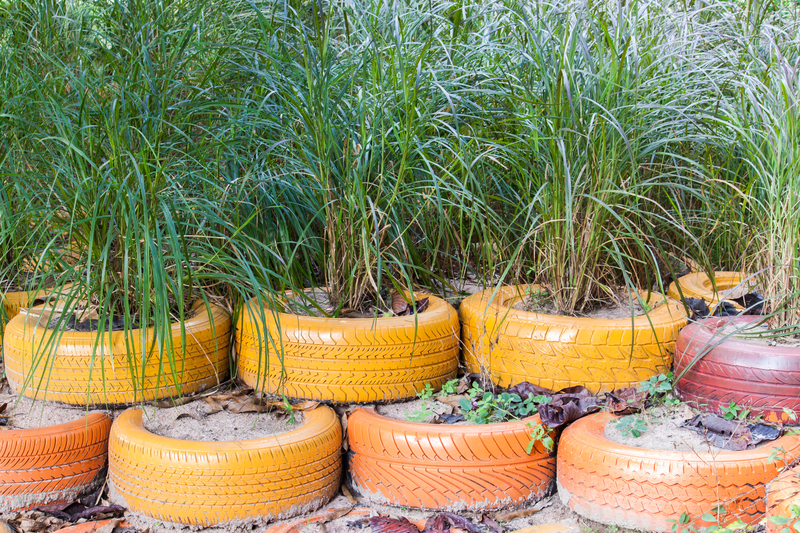Enhance Office Recycling Practices: A Comprehensive Guide
Organizations are increasingly striving to create eco-friendly workspaces, and improving office recycling practices plays a vital role in achieving this goal. Implementing effective recycling in the workplace reduces environmental impact, demonstrates corporate responsibility, and often leads to cost savings. If you're looking for ways to enhance office recycling practices, this in-depth guide covers everything from the benefits of sustainable work environments to actionable strategies for lasting change.

Why Is Optimizing Office Recycling Important?
- Environmental Stewardship: Offices are significant producers of waste, much of which can be diverted from landfills with better recycling procedures.
- Compliance and Public Perception: Regulatory requirements and public awareness continue to grow. Demonstrating a green corporate ethos can strengthen your brand image.
- Cost Efficiency: Managing waste efficiently often leads to lower waste disposal costs and potentially generates revenue through recycled material.
- Boosting Employee Engagement: Green office initiatives foster a sense of responsibility and community.
Understanding the Challenges of Office Recycling
Before you can effectively improve office recycling methods, it's important to understand common roadblocks:
- Lack of education and awareness among employees
- Insufficient recycling infrastructure and bins
- Confusion regarding recyclable and non-recyclable materials
- Minimal accountability or incentives for proper recycling
- Contamination of recycling bins due to improper sorting
Steps to Enhance Your Office Recycling Practices
1. Conduct a Waste Audit
Start by determining the types and amounts of waste your office generates. A thorough waste audit will:
- Reveal high-volume waste streams
- Identify commonly overlooked recyclable materials
- Pinpoint sources of contamination
Document your findings to serve as a baseline for setting achievable recycling goals.
2. Set SMART Recycling Goals
- Specific: Focus on increasing paper recycling by 25%, for example.
- Measurable: Use bins with tracking capabilities or regular waste assessments.
- Achievable: Set realistic targets after your waste audit.
- Relevant: Align recycling ambitions with broader company sustainability initiatives.
- Time-bound: Set a target date for re-evaluation.
3. Educate and Engage Your Team
Training employees is critical for successful office recycling programs. Consider these ideas:
- Host workshops or brown-bag sessions about recycling best practices.
- Distribute clear guidelines and visual aids identifying what can and can't be recycled.
- Incorporate fun recycling challenges to motivate departments and offer incentives for meeting targets.
4. Place and Label Recycling Bins Strategically
- Accessibility: Place bins in high-traffic areas like break rooms, copy centers, and by desks.
- Visibility: Use brightly colored bins with clear signage to minimize confusion and contamination.
- Specialized bins: Consider separate bins for paper, plastics, e-waste, batteries, and toner cartridges.
5. Reduce, Reuse, Then Recycle
Waste reduction sits at the top of the waste hierarchy. Encourage practices such as:
- Using digital documents to minimize paper use
- Purchasing office supplies made from recycled content
- Encouraging employees to use reusable cups, plates, and utensils
Promote the mantra: Reduce first, reuse when possible, and recycle all eligible materials.
6. Collaborate with Recycling Partners
- Work with local waste management companies to ensure your recyclables are properly processed.
- Explore partnerships for special waste streams: electronics, batteries, or confidential papers.
Many vendors provide employee training, signage, and performance reports as part of their service.
7. Monitor, Measure, and Celebrate Progress
- Regularly review the effectiveness of your green office program.
- Share waste reduction and recycling achievements with staff.
- Celebrate milestones with small rewards or office-wide acknowledgments to maintain momentum.
Best Practices for a More Sustainable Office
Enhance Office Waste Sorting Systems
Implementing a well-organized sorting system can dramatically improve recycling rates by minimizing stream contamination. Utilize clearly labeled and color-coded bins for:
- Paper and Cardboard
- Plastics (with recycling numbers)
- Metal and Aluminum
- Organic Compost (food scraps, coffee grounds)
- Electronic Waste
Post visuals and infographics to help employees quickly identify which items belong in each bin.
Embrace Digital Transformation
- Switch to electronic signatures, cloud storage, and digital communication tools to minimize paper consumption.
- Encourage using online forms and mobile apps for everyday office processes.
Opt for Eco-Friendly Office Supplies
Make sustainability part of your procurement strategy:
- Order products with minimal or recyclable packaging
- Choose office supplies labeled as post-consumer recycled content
- Support suppliers committed to sustainability and ethical sourcing
Recycle Office Electronics Responsibly
E-waste contains hazardous substances but also valuable materials. Establish periodic electronics recycling drives for:
- Old computers, printers, and monitors
- Batteries and rechargeable cells
- Mobile phones and peripherals
Host Awareness Activities and Green Events
Organize events such as Earth Day workshops, lunch-and-learns, or company clean-up days. Use these as opportunities to remind staff of recycling goals and celebrate sustainability champions within your office.
Optimizing Office Recycling for the Future
Leverage Technology to Improve Recycling Efforts
Modern offices are using tech to further enhance office recycling practices:
- Smart Bins: Bins with sensors notify when they're full or identify contamination.
- Recycling Apps: Mobile applications that educate and engage employees or offer rewards for correct recycling behaviors.
- Data Analytics: Track waste outputs in real time and adjust strategies as needed.
Create a Green Culture That Lasts
The most successful recycling programs are supported by the company culture. Foster an environment where sustainability becomes second nature:
- Appoint recycling champions or green teams to lead initiatives and encourage participation.
- Make eco-consciousness part of onboarding and regular employee training.
- Link office recycling goals to company values and mission statements for consistency and emphasis.
Common Office Recycling Mistakes and How to Avoid Them
- Throwing Non-Recyclables into Recycling Bins: This contaminates the stream and can lead to entire loads being landfilled. Education and clear signage are key.
- Failing to Clean Containers: Require that food and drink packaging are rinsed before recycling.
- Ignoring E-Waste: Small electronics can be overlooked. Arrange for periodic e-waste pickups.
- Single-stream Overload: In offices with single-stream recycling, ensure employees are aware of the rules to avoid contamination.

Case Study: Office Recycling Success Story
Consider the example of a mid-sized tech firm in the US that revamped its recycling program as part of a corporate sustainability drive:
- Conducted a detailed waste audit with employee feedback
- Invested in color-coded bins with distinct labeling
- Launched regular green workshops and monthly recycling contests
- Appointed green ambassadors from each department
- Expanded to electronic waste, toner, and battery recycling
- After six months, reduced landfill-bound waste by 43% and improved employee satisfaction
The lesson: Comprehensive planning, employee engagement, and measurement lead to outstanding results in office recycling enhancement.
Conclusion: Start Improving Your Office Recycling Program Today
Making your workplace greener isn't just about ticking eco-friendly boxes--it's about creating a workplace culture that values long-term sustainability. With thoughtful planning, clear communication, and continual improvement, you can enhance office recycling practices and set a positive example within your industry.
- Start with a realistic recycling assessment
- Educate your team and make recycling easy and rewarding
- Use the latest tools and best practices to keep evolving
Ready to make a difference? Implement these actionable steps to foster a cleaner, greener, and more sustainable office today.